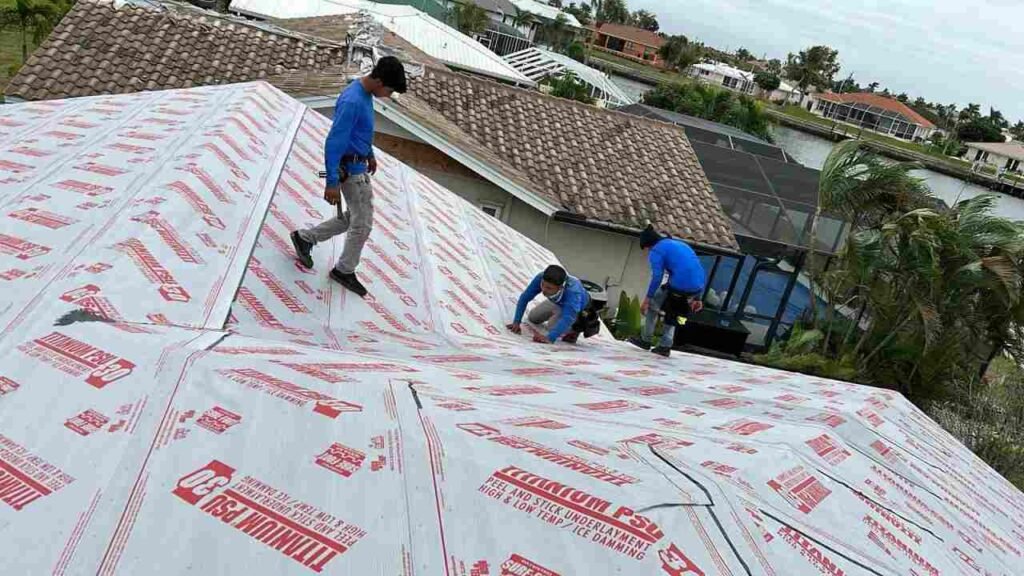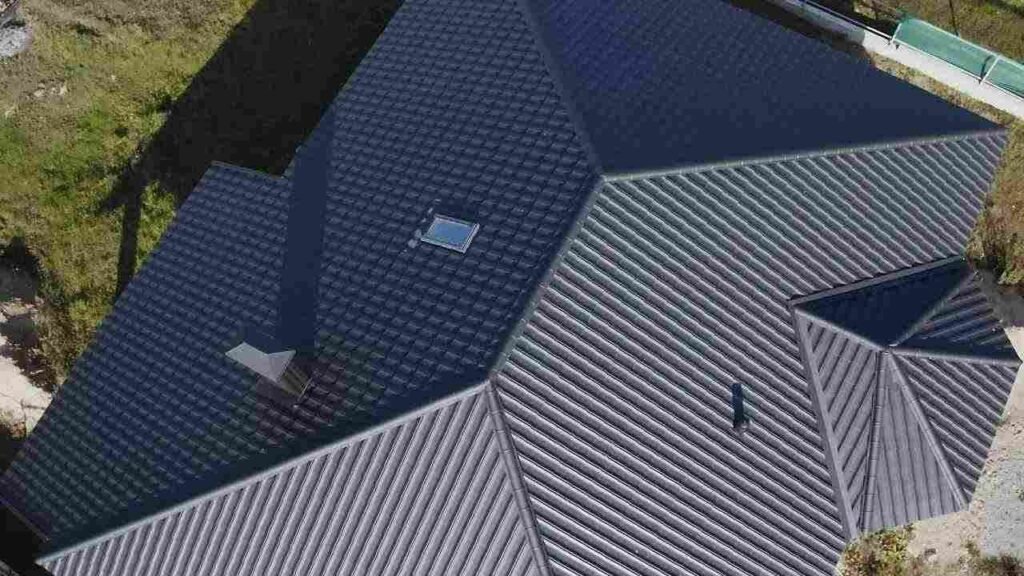When it comes to roof replacement in Louisville, KY, timing is everything. The weather in this region can be unpredictable, with hot summers, cold winters, and frequent rainfall, which can affect the roofing process. Choosing the right time of year for your roof replacement can ensure better results, avoid unnecessary delays, and save you money in the long run. While roofing can technically be done year-round, certain seasons offer advantages over others. Let’s dive into the best times of year to replace your roof in Louisville with the support of Humberto Maradiaga.

Whether you’re planning to replace an aging roof or addressing storm damage, knowing when to schedule your roof installation services will help maximize efficiency and ensure that your new roof is properly installed. The timing of your roof replacement can also impact the cost, as certain seasons may offer lower demand and better pricing. Additionally, scheduling your roof installation services during optimal weather conditions ensures that the installation process goes smoothly, minimizing the risk of weather-related delays.
Understanding the Importance of Timing for Roof Replacement
The timing of your roof replacement is essential for ensuring the longevity and effectiveness of the installation. Scheduling your roof replacement at the right time not only influences the quality of work but also impacts the overall cost and convenience. Roofing projects are highly weather-dependent, and delays or subpar installation due to harsh weather conditions can lead to future problems, such as leaks or poor insulation. A properly timed roof replacement ensures that the new roof is installed under optimal conditions, maximizing durability and efficiency. Understanding roof pitch and its importance also plays a role in timing your roof replacement, as it affects the materials and techniques needed for a successful installation.
The Impact of Louisville’s Climate on Roof Installation
Louisville’s climate can be quite unpredictable, with humid summers, cold winters, and frequent rainfall. These weather patterns play a significant role in determining the best time for roof replacement. Extreme temperatures, heavy snow, or rain can interfere with the roofing process, delaying the project or affecting the quality of the installation. Signs that your roof needs repair, such as leaks, missing shingles, or damaged flashing, can become more pronounced during adverse weather conditions. Roof installation services are best performed during mild weather, where the conditions allow for proper installation without the risk of weather-related interruptions.
Spring: A Great Season for Roof Replacement in Louisville
Spring is one of the best times for roof replacement in Louisville. After the cold, harsh winter, homeowners often find signs of damage to their roofs, including leaks or missing shingles, making spring the perfect time to address these issues. The temperatures are moderate, and the weather is typically more predictable, allowing roof installation services to proceed without delays. Additionally, the mild spring conditions help roofing materials perform optimally during installation. Spring also offers lower demand for roofing services, which can result in competitive pricing and quicker service. Timely inspection required for the roof after the winter months ensures that any hidden damage is addressed early. As the season prepares for summer rains, it’s crucial to get your roof in shape before the weather takes a turn.
Summer Roof Replacement: Pros and Cons
While summer provides warm weather for roofing projects, there are both pros and cons to scheduling a roof replacement during this season. On the plus side, the weather is typically dry and predictable, ensuring that your roofing contractor can work without interruptions. With extended daylight hours, roofing work can proceed quickly, potentially reducing the total project timeline. However, summer also tends to bring higher temperatures, which can make the work environment more challenging for roofing crews and potentially lead to slower work rates. Additionally, summer is a busy season for roofers, so you might face longer wait times or higher service costs due to high demand.
Fall: Ideal Conditions for Roof Replacement Projects
Fall is considered one of the best times for roof replacement in Louisville due to the combination of mild weather and minimal rain. The cooler temperatures make it comfortable for roofing crews to work efficiently without the risks of extreme heat. Additionally, the fall season often sees fewer thunderstorms and other severe weather conditions, reducing the chances of delays. Fall also marks the end of the peak roofing season, so contractors may offer better pricing or have more availability. Replacing your roof before winter ensures that your home is well-prepared for the colder months, protecting it from snow and ice buildup.
Winter: What to Consider
Winter roof replacements are possible but come with some unique challenges. The cold weather can make roofing materials, such as asphalt shingles, less flexible and more prone to cracking. Additionally, roofing crews may face difficulties with icy surfaces, snow accumulation, or shorter daylight hours, which can delay the project. However, winter replacements can also have benefits, such as lower demand for roofing services and potential cost savings. If you’re facing an emergency roof issue, winter replacement may be necessary, but it’s important to work with experienced roofers who can safely handle the weather challenges. Timely maintenance and proper winter preparation are key to avoiding damage during this season.
How Weather Affects Roof Installation Efficiency
Weather plays a critical role in the efficiency of roof installation. Extreme conditions, such as heavy rain, snow, or high winds, can delay roofing projects and even cause damage to the roof before the installation is complete. For example, rain can soften roofing materials and create moisture buildup, while wind can blow materials off the roof or pose safety risks to workers. On the other hand, moderate temperatures and clear skies allow the installation to proceed smoothly, ensuring that the roofing materials are correctly sealed and that the roof’s integrity is not compromised. Understanding how weather affects roof installation efficiency helps homeowners plan better and avoid unnecessary delays.

How to Choose the Best Time for Roof Replacement Based on Your Roof’s Condition
Choosing the right time for roof replacement should also depend on the condition of your current roof. If your roof is in poor condition, with leaks or visible damage, waiting for the ideal season may not be practical. In such cases, replacing the roof sooner rather than later is crucial to prevent further damage to your home. On the other hand, if your roof is relatively new or only requires minor repairs, you might have the flexibility to schedule the replacement during a more favorable time of year. Assessing your roof’s needs will help determine when it’s most important to address issues and when it’s best to wait for ideal conditions.
Cost Considerations: How Timing Affects Your Roof Replacement Budget
Timing can have a significant impact on the cost of your roof replacement. During peak roofing seasons like spring and summer, contractors may charge higher rates due to increased demand and busy schedules. Conversely, scheduling your roof replacement in the off-season, such as late fall or winter, may lead to lower labor costs, discounts, or promotions, as roofing companies typically have fewer projects. Additionally, the type of roofing materials required for the job can fluctuate in price depending on the time of year. By being mindful of when you choose to replace your roof, you can potentially save money and find more competitive pricing for high-quality services.
The Benefits of Scheduling Your Roof Replacement Early
Scheduling your roof replacement early offers several benefits, especially when considering the seasonal factors that impact roofing. By planning ahead, you secure a time that works best for your home’s needs, avoiding delays caused by weather or roofing crew availability. Early scheduling also gives you the opportunity to review multiple roofing options, materials, and contractors, ensuring you choose the best fit for your home and budget. Moreover, getting a jump on roof replacement before the peak season ensures that your home is protected well in advance, so you won’t have to worry about roof damage during extreme weather events like storms or heavy snowfalls.
Avoiding Delays: How to Plan for Roof Replacement in Louisville’s Unpredictable Weather
Louisville’s unpredictable weather can lead to delays in roof replacement projects if not planned for properly. To avoid these setbacks, it’s important to schedule the replacement during a season that offers the least risk of inclement weather. Additionally, hiring an experienced roofing contractor who is familiar with local conditions will help ensure that the work progresses smoothly despite the challenges posed by temperature shifts or rain. Preparing for possible weather delays by building in buffer time to your project timeline will help ensure that your roof replacement stays on track.
Conclusion
Choosing the best time for roof replacement in Louisville is essential to ensure a smooth and efficient project. While spring and fall offer the most favorable weather conditions, each season has its pros and cons. Summer can bring higher demand and increased costs, while winter might lead to challenges with extreme cold or snow, though it can be more affordable. Understanding the impact of Louisville’s climate and your roof’s condition is key to making an informed decision. Early planning, coupled with the right timing, not only ensures a high-quality roof installation but also helps you manage your budget effectively. By considering these factors, homeowners can avoid delays, protect their property, and ensure their new roof is installed under optimal conditions.
FAQs
What is the best time of year to replace a roof in Louisville, KY? The best times are typically spring and fall when weather conditions are mild, making it easier for roofing contractors to work efficiently.
Can roof replacement be done in winter in Louisville, KY? Yes, roof replacement is possible in winter, but cold temperatures can cause delays, and certain materials may not adhere properly in freezing conditions.
How long does roof replacement take in Louisville? On average, roof replacement in Louisville takes 1 to 3 days, depending on the size of the roof, materials, and weather conditions.
Does roofing work in summer cause higher costs? Yes, summer often brings higher demand for roofing services in Louisville, which can lead to increased costs due to limited availability of contractors.
Can roof replacement be delayed until fall if there’s no immediate damage? If your roof isn’t showing signs of major damage, you can wait until fall, which offers a more balanced climate for roofing work.
